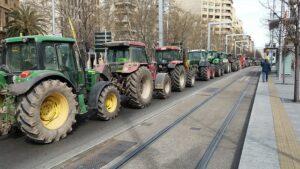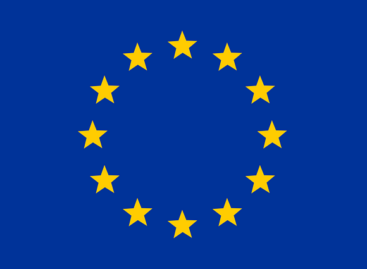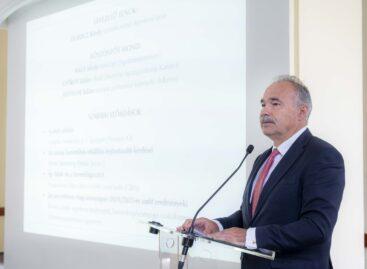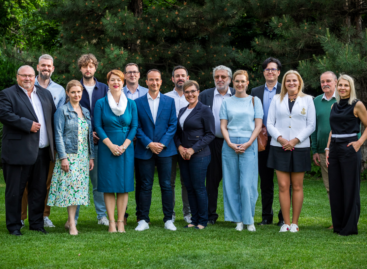The first results of the European farmers’ demonstrations were born
As a result of the cooperation of farmers at the European level, the European Commission has reconsidered the provisions of the Common Agricultural Policy in some areas. Thanks to the amendments to the decree, there are changes in some rules, but there is still no meaningful progress in other areas, especially in relation to Ukrainian food imports. Some of the facilitations now accepted in the European Union may come into effect as early as the 2024 application period. The National Chamber of Agrarian Economy and the Association of Hungarian Farmers’ Associations and Farmers’ Cooperatives (MAGOSZ) welcome the simplifications, but in order to preserve our competitiveness and protect EU consumers, much bigger changes are needed in the European Commission’s policy.

(Photo: Pixabay)
The wave of farmers’ protests in Europe did not remain without an echo, as the European Parliament voted the other day on the commission’s proposal to amend certain rules of the Common Agricultural Policy (CAP). The promulgation of the EU regulations is expected to take place by the end of May (ie after the sowing period), so the changes will essentially affect the next economic year. In order to simplify the support conditions, the EU regulations have been amended, so the member states will have the opportunity to adjust their rules, which may even make it easier for agricultural producers in the 2024 application period. According to the new regulations, member states can amend the KAP Strategic Plan twice every calendar year. At the same time, there would still be plenty of room for legislative simplifications in the rules of the Common Agricultural Policy. We hope that the work will continue and that further simplification proposals may be decided upon in the coming months. Farmers need a stable and predictable environment to continue their operations and provide consumers with healthy, safe food.
The EU regulation amendment package primarily affects the provisions of the Good Agricultural and Environmental Status (HMKÁ)
Farmers who receive both area-based support within the framework of the Rural Development Program implemented until December 31, 2025, and are therefore subject to conditionality checks, are exempt from the application of mutual compliance checks and sanctions. In addition, the sanctions related to conditionality do not affect agricultural producers who manage an area of less than 10 hectares. HMKÁ 6., that is, the regulations on Minimum ground cover, are also simplified. Our country can take advantage of this opportunity in the case of areas used for the cultivation of rice or Indian rice. According to this, the obligation to cover the soil in the current year does not have to be fulfilled without covering the soil – in addition to ventilation, smoothing or leveling – on rest areas that were used for growing rice or Indian rice in the year before the current year. HMKÁ 7., or the Szántóföld crop rotation, is complemented by the diversification of crop production. In addition to crop rotation, farmers can also meet this requirement by diversifying crop production. A farmer with over 10 hectares but no more than 30 hectares of arable land must grow at least two types of arable crop in a given year, one crop can occupy no more than 75 percent of the total arable area. Farmers with arable land over 30 hectares must grow at least three types of crops, one crop can occupy no more than 75 percent of the total arable land, and the crops grown in the two largest areas together cannot exceed 95% of the arable land. When calculating the ratio of different plant crops, the period from May 1 to September 30 in the year of submission of the unified application must be taken into account.
The amendment to the European Union regulation also affects HMKÁ 8, i.e. the Preservation of Biological Diversity rule
The European Commission’s proposal removed the obligation to designate non-productive areas from the regulation system, while the obligation to preserve protected landscape elements and the prohibition of cutting, pruning, and mutilating hedges and trees during the breeding and chick rearing period will continue to be included in the regulations. This year, our country cannot yet take advantage of the HMKÁ 8 exemption, as we used the HMKÁ 8 derogation for the year 2024, within the framework of which the obligation to designate non-productive elements and areas to 4%, the Agro-Ecological Program (AÖP) and its obligation changed from 5-5% to 1-9%. However, in the following year, the relief also applies to domestic agricultural producers.
NAK
Related news
The European Union started the year with significant growth and a decrease in inflation
According to the latest report of the European Commission, at…
Read more >The government stands by the grape growers and the winemakers
There are enough challenges in the grape and wine sector,…
Read more >Among the most competitive sectors is the poultry sector
We help the poultry sector with direct and national subsidies,…
Read more >Related news
Euro zone inflation was 2.4 percent in April as well after March
In accordance with what was announced in advance, the annual…
Read more >The Hungarian Marketing Association elected new board members
The defining organization of the profession, the Hungarian Marketing Association…
Read more >An all-around convincing performance by this year’s EuroCIS
This year’s EuroCIS – the leading trade fair for the…
Read more >







